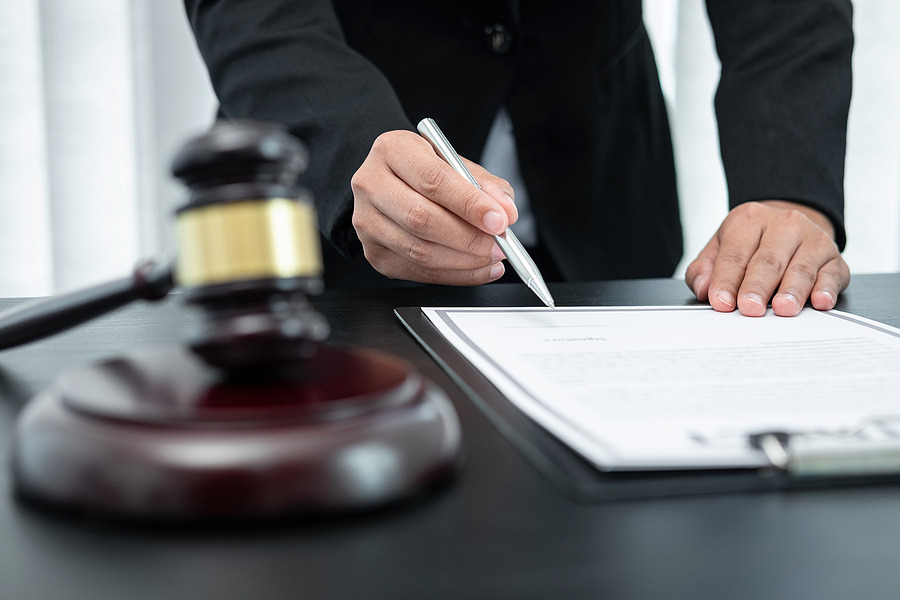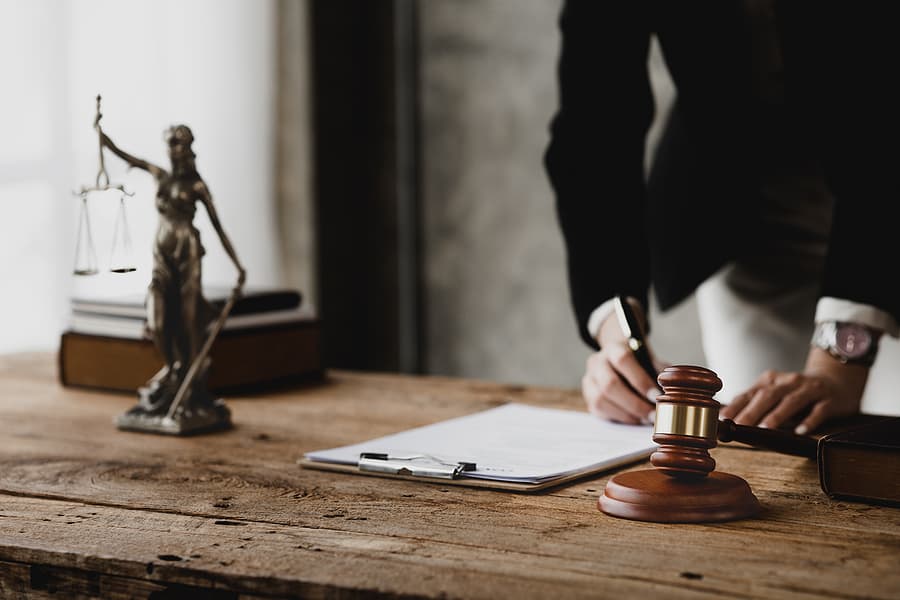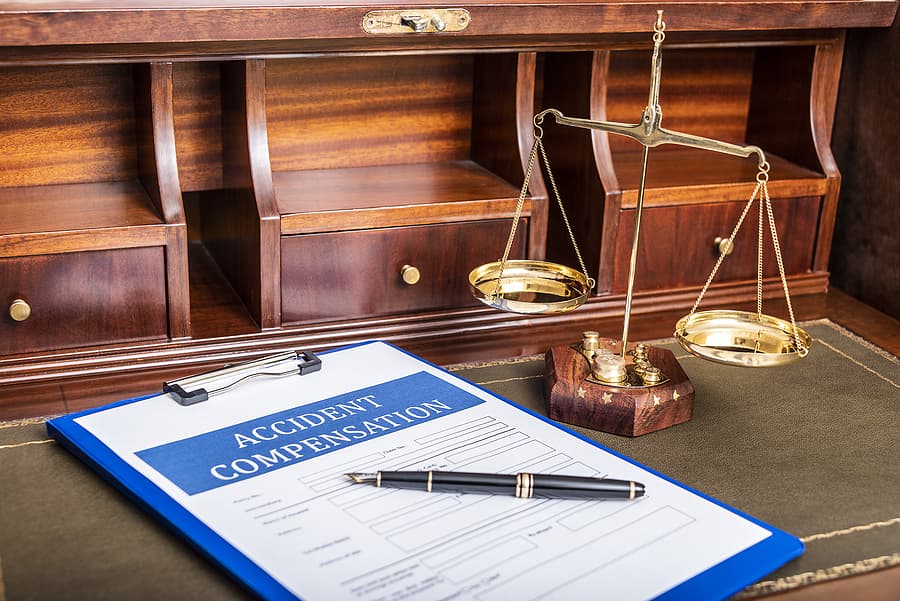If you have been hurt by another person’s negligence, you are likely wondering how to seek compensation for your losses. Personal injury victims have rights under the law, but how you go about your case and who you enlist to help you can greatly influence what the outcome might be. Filing a personal injury lawsuit is a way to seek just compensation for your injuries. Understanding the personal injury lawsuit process can help you anticipate how your case can move forward and the timeline for resolving a personal injury matter.
What Happens Before Filing a Suit With the Court?
It may be surprising to see how much work goes into a personal injury case before a lawyer officially files suit in court. When you are a victim of a personal injury, it can feel as though the aftermath of your accident is chaotic and moving fast. In some cases, things can move rather quickly, and your rights and compensation are at risk when you are not involved or aware of the developments in your case. Your first step after an accident resulting in a personal injury is finding the right lawyer to represent you in the case.
Hiring a Personal Injury Attorney
Whether to hire a personal injury attorney is not a question you should put off answering for too long. When you suffer an injury that you believe is someone else’s fault, you need a knowledgeable and experienced attorney to represent you and your interests from the initial stages of your personal injury case.
If you are unsure about hiring an attorney because you do not feel that your case is serious enough or that the outcome might be uncertain, rest assured that an attorney can help you navigate this uncertainty. Personal injury attorneys know how insurance companies work and when a case is worth pursuing. Therefore, most personal injury attorneys, including Gruel Mills, offer free case consultations so potential clients can sit down, share their case details, and receive feedback on the likelihood of a successful resolution.
Once an attorney accepts your case and you hire them to represent you, they will immediately get to work on gathering information and taking action.
A Lawyer Will Evaluate and Investigate Your Case

Once they take you on as a new client, a lawyer will want to understand the details of your case. Your attorney did an initial general evaluation to decide whether they would accept your case, but once you are a client they will launch a much more thorough investigation into how your injury happened and who might be responsible for it.
Personal injury attorneys often have significant resources that are not accessible to everyday people suffering from an injury. They can obtain information that may be in jeopardy of getting lost or destroyed and track down witnesses or experts that can provide vital statements or opinions on your case about who may have caused your injuries.
Establishing Your Damages
Your injuries are the basis for which you will seek damages and compensation in a personal injury case. Considering all aspects of your losses is critical to ensure that your attorney can seek the maximum potential damages as part of your claim or lawsuit.
Your attorney must account for all losses you already sustained and those losses you may continue to suffer in the future. Seeking recovery of only your current losses would be a significant disservice to you and would put your future financial stability at risk. Surprise complications or medical care that drags on much longer than anticipated can be costly and leave victims with significant financial burdens after a personal injury accident.
The lawyer in your case will estimate the damages early on and modify them as the case progresses to help you make decisions as you seek compensation for your injuries.
Your Attorney Will Prepare and File an Insurance Claim
A lawsuit will not likely be the first thing your attorney files on your behalf. The focus of your case in its beginning stages will likely be on the insurance claims process. In some cases, you may reach a successful settlement with the insurer early on with the help of your attorney.
Your lawyer will prepare your claim, file the documentation and support requested by the insurer to prove your damages, manage communications with your insurance company, and negotiate on your behalf for the highest possible offer from the insurer.
Attempts to Negotiate a Settlement in the Case Through an Insurance Claim
Insurance claims negotiations can take time and several rounds of back and forth communications between you, your attorney, and the insurance company. The insurance company may eventually offer you a fair settlement that compensates you for a significant portion of your losses.
Your attorney will inform you of all offers made by the insurance company. After an offer, they will advise you about the merits of the offer, and you can decide whether to accept, submit a counter offer, or go forward with a lawsuit.
If Negotiations Do Not Succeed, Your Attorney May File Suit in Court
Many cases resolve in the insurance claim stage because lawsuits can be slow and costly once they are filed with the court. However, a successful settlement can be impossible, particularly for cases with exceptionally high damages or damages that exceed the insurance policy’s coverage limits, if there is a dispute as to liability, or there have not been reasonable settlement offers from one side.
When resolution will probably not occur during pre-suit negotiations, your attorney will shift their focus to filing your case in court against the parties liable for your damages.
Naming the Defendants in the Case
When an attorney files a lawsuit on your behalf, they must also name the defendants in the case and who you believe are liable for your losses. In some cases, there may be just one defendant, such as the party directly at fault for your injuries. In other instances where an insurance company is involved, the suit may include the insurer, the at-fault party, and any other party your attorney believes played a role in the accident or negligence leading to your injuries.
Personal injury lawyers will try to include anyone they believe is responsible based on the evidence and facts of the case. This protects your rights under the law, because additional parties may not be able to be added later due to the statute of limitations that sets a deadline for you to file your case. Your attorney will ensure that the proper parties are part of the lawsuit and that your case filing complies with the deadlines set out by your state for personal injury cases.
Personal injury statutes of limitations differ from state to state and each state has its own exceptions to this deadline. It is thus imperative that you and your lawyer stay on top of this date and file a lawsuit on time. This punctuality prevents any possibility of the court barring your recovery simply for not filing the case on time.
Filing the Lawsuit Against the Parties at Fault for Your Injuries
Once your attorney officially files your lawsuit in court, the court is now involved in your case. Your attorney will begin the necessary work towards a trial where the court or a jury will determine who is at fault for your injuries and the amount of your damages. In addition, many formalities, procedures, and motions may take place in preparing for a trial in a personal injury lawsuit.
Lawsuits take time. It takes time to build the case and meet the court’s requirements, and you must also consider that you are at the mercy of the court’s schedule and availability. When it becomes clear that your case must go through the court for the best possible resolution, you must prepare for delays and a longer timeline than when a case settles outside of court.
The Discovery Process in a Personal Injury Case
Discovery is the process by which the parties exchange evidence and information about your personal injury lawsuit. Discovery allows each side to access the relevant information the opposing side is using to prove its case. This process can include documentation, evidence, witnesses, and other records used to prove liability, defenses, or damages. During discovery, each side may request evidence, submit requests for interrogatories, and schedule depositions of witnesses or any relevant party to the case. Unlike on television, lawyers cannot hide the “smoking gun” evidence and reveal it only at trial.
The Process of Seeking a Settlement
If a party and their attorney learn important information for the case through discovery, they may seek to resume negotiations for a settlement outside of court. When an insurance company or at-fault party realizes that a plaintiff has a strong case to prove liability or the extent of the damages, they may be willing to work towards a settlement to reduce their losses.
Lawsuits cost money, and if a defendant in your case believes they are at risk of spending more to defend their position and proceed with a trial than by settling, they may make you a more appealing offer to resolve your personal injury case. Parties may also try to resolve the claim through mediation, which is where a neutral third party helps with the settlement negotiations.
A settlement can occur at any point.
Going to Trial in a Personal Injury Case
Once you complete trial preparation and meet all court requirements, the court will set a trial date. Trials vary in how long they take to complete depending on the issues in dispute and the amount of evidence presented by either side. Your case will most likely be presented to a jury, but it can be presented only to the judge in what is called a “bench trial.” The “fact finder,” either the jury or the judge, will decide who is liable for the plaintiff’s injuries. If there are multiple parties at fault, the court or jury will assign a percentage of fault to each party involved.
If the verdict is in favor of the plaintiff, you will receive damages as compensation. There is no way to predict how a trial will end, whether the verdict will be in your favor, or the amount of money you will receive, but your attorney can help you understand the strengths of your case and the benefits and drawbacks of going forward with a trial if your case warrants it.
Judgment and Appeal
When the court decides your case, that concludes the trial phase. If you are successful, the court will direct the defendant in the case to make payment of the compensation awarded through a judgment against them. If there were any legal problems with the case, either party may decide to appeal the verdict. Your attorney will thoroughly explain the appeals process. Reach out to a personal injury lawyer.
If you or a loved one have suffered a personal injury and you believe you have a right to compensation, contact our office to schedule a free case evaluation and consultation about what legal options are available for you.



